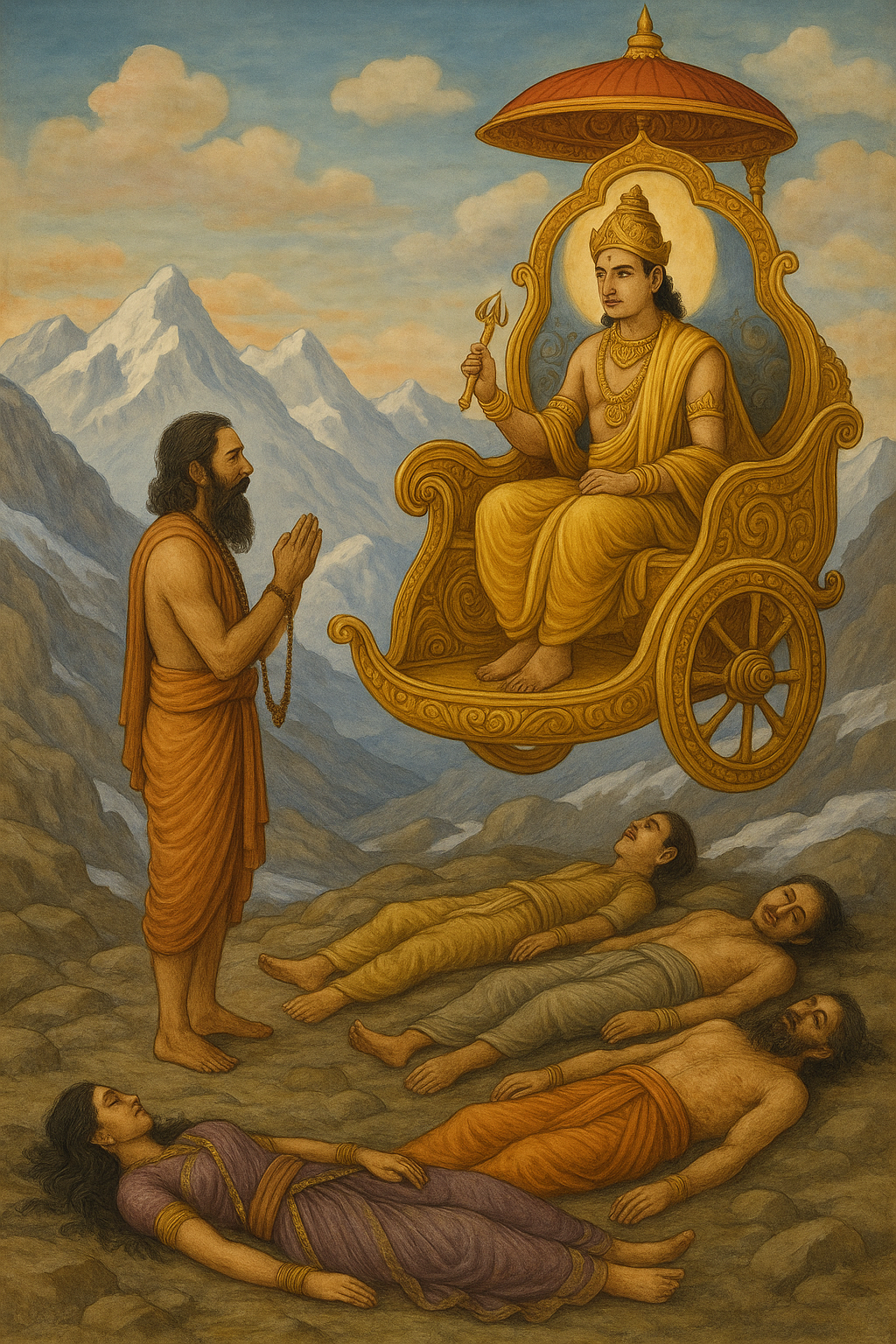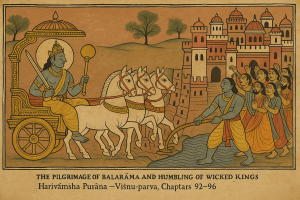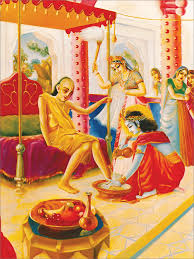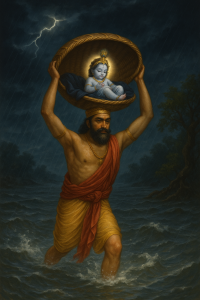The Aftermath of Kṛṣṇa’s Departure
After Lord Śrī Kṛṣṇa returned to His eternal abode and the Yādava dynasty had dissolved into the ocean of time, Arjuna, overwhelmed with sorrow, returned to Hastināpura to report the events to King Yudhiṣṭhira.
As Arjuna narrated the tragic destruction of the Yādavas, the submergence of Dvārakā, and the disappearance of Lord Kṛṣṇa, tears flowed from the eyes of the Pāṇḍavas. The Lord who had been their friend, protector, and guide—was no longer visible in this world.
Yudhiṣṭhira understood: Dvāpara-yuga was ending, and the time had come for them to prepare for their own departure.
Yudhiṣṭhira’s Renunciation
Yudhiṣṭhira, always dharmic and wise, reflected on the temporary nature of the world:
“What use is a kingdom without the Lord? What meaning is there in ruling when dharma itself has taken shelter of Kṛṣṇa’s lotus feet?”
Determined to end their royal duties, he crowned Parīkṣit, the grandson of Arjuna and son of Abhimanyu, as the king of Hastināpura. Parīkṣit, a pure devotee born in the womb of Uttarā, had been personally protected by Kṛṣṇa in the womb from Aśvatthāmā’s brahmāstra.
The Pāṇḍavas, accompanied by Draupadī, renounced all wealth, titles, and attachments, dressing in bark garments and taking up the life of vanaprastha (forest-dwellers).
The Great Journey to the North
Setting out toward the Himalayas, the five brothers and Draupadī walked barefoot, with only Kṛṣṇa’s name in their hearts.
As they traveled toward the north, passing through forests, rivers, and snow-covered paths, they began to leave behind their earthly forms:
- Draupadī was the first to fall.
- Then Sahadeva, followed by Nakula, Arjuna, and Bhīma.
Yudhiṣṭhira alone remained—steadfast, serene, unattached.
The Test of Yudhiṣṭhira’s Dharma
As Yudhiṣṭhira reached the end of the journey, a celestial chariot descended, sent by Lord Indra to carry him to the heavenly planets.
But Yudhiṣṭhira hesitated.
“What of my brothers? What of Draupadī? I will not enter heaven alone while they remain fallen!”
Indra assured him that they had reached their destined abodes based on their karma and spiritual merit. Still, Yudhiṣṭhira was not pacified until he was allowed to understand the true nature of their journeys—and saw that his loved ones were already liberated or had taken auspicious births in higher realms.
Only then did he step into the chariot.
The End of Dvāpara-yuga and Entrance to Kali-yuga
With the departure of the Pāṇḍavas and the disappearance of Kṛṣṇa, the age of Dvāpara-yuga ended, and Kali-yuga began.
The Earth trembled. Dharma now stood only on one leg—truthfulness—and the age of quarrel and hypocrisy dawned.
But a great blessing remained: Śrīmad Bhāgavatam would soon be spoken, and bhakti (devotional service) would shine as the only true path in the darkness of the age.
Lessons to Be Learned:
- Even the greatest kings renounce all when the Lord departs, showing the fleeting nature of material success.
- True dharma is not about ruling, but about surrendering to the Supreme Lord.
- Renunciation should be accepted at the proper time, guided by wisdom and inner detachment.
- Devotees who surrender fully to Kṛṣṇa are never lost, regardless of their external fall.
- The path of truth, devotion, and humility leads to liberation and eternal reunion with the Lord.
Origin of the Story: Harivaṁśa Purāṇa – Viṣṇu-parva, Chapters 105–108



